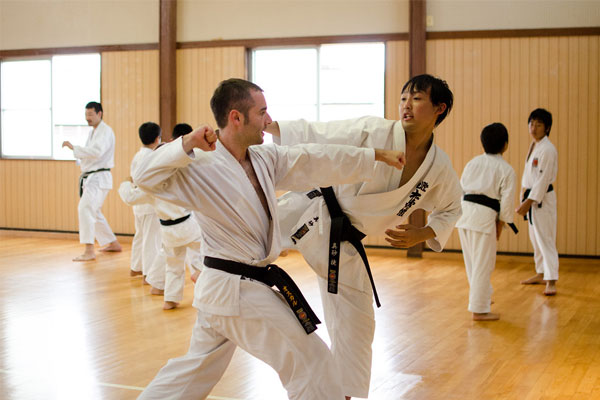Martial Arts Near Me
Karate
Karate is a traditional Japanese martial art that originated in the Ryukyu Islands, now known as Okinawa, hundreds of years ago. With its rich history, diverse techniques, and widespread popularity worldwide, karate has become much more than just a self-defense system—it is a way of life for millions of practitioners around the globe.
The origins of karate can be traced back to ancient Chinese martial arts, such as Kung Fu, which were introduced to Okinawa in the 14th century. These martial arts were primarily practiced by the warriors, or samurai, of that time to defend themselves in combat. Over the centuries, Okinawan masters adapted and refined these techniques, developing their unique style known as "Okinawa-Te" or "Toudi."
In the 19th century, Okinawa's connection with China grew, and with it came an evolution of their martial arts. During this time, karate began incorporating Chinese martial arts principles, resulting in the development of various Okinawan styles, including Shuri-Te, Naha-Te, and Tomari-Te. These styles brought different emphasis and approaches to karate, but they all shared the common goal of practical self-defense.

However, it was not until the early 20th century that karate gained wider recognition and popularity. Master Gichin Funakoshi, often revered as the father of modern karate, was instrumental in introducing karate to mainland Japan and eventually the world. In 1922, he demonstrated his art at the first public martial arts tournament in Tokyo, where it received tremendous acclaim and caught the attention of martial arts enthusiasts.
Funakoshi's efforts led to the establishment of the Japan Karate Association (JKA) in 1949, which further solidified karate's position as a respected martial art. The JKA introduced a standardized curriculum, ranking system, and competition formats that helped karate gain recognition in the sporting world. Karate's inclusion as an Olympic sport in the upcoming Tokyo 2021 Olympics is a testament to its enduring popularity and global reach.
Techniques in karate are vast and diverse, encompassing strikes, kicks, blocks, throws, and joint locks, among others. Traditional karate training emphasizes the development of proper stances, balanced body alignment, and efficient use of the body's biomechanics to generate power. Katas, predetermined patterns of movements, serve as a vital component of karate training, allowing practitioners to practice techniques and develop muscle memory. Sparring, known as Kumite, provides an opportunity for practitioners to apply their techniques under controlled conditions, focusing on timing, distance, and strategy.
The core principle of karate is the perfection of character, which is achieved through rigorous physical training and disciplined mental focus. Karate is not just about physical strength but also about cultivating one's virtues, such as respect, humility, integrity, and self-control. Traditional karate dojos (training halls) prioritize the development of a strong moral compass and instill a deep sense of discipline and perseverance.
While rooted in tradition and culture, karate has evolved over time to meet the demands of modern society. There are numerous styles and organizations worldwide, each with their unique approach and focus. Some emphasize practical self-defense techniques, while others concentrate on the sport aspect of karate. The sport karate aspect has gained significant prominence, with various competitive formats, including full-contact tournaments, point sparring, and kata competitions.
In recent years, there has been an increasing emphasis on the health benefits of practicing karate. Regular training in karate enhances physical fitness, improves flexibility, promotes cardiovascular health, and develops core strength. Beyond the physical benefits, karate training enhances mental well-being, reduces stress, and cultivates a strong sense of self-confidence.
Today, karate enjoys a broad international following, with millions of practitioners across the globe. It is not only a popular martial art but has also transcended borders and become an essential tool for personal development, fitness, and self-defense. Karate's philosophy continues to resonate with people of all ages and backgrounds, fostering a strong sense of community and respect among its practitioners.
Karate's rich history, diverse techniques, and ever-growing global popularity make it a fascinating martial art. From its humble origins in Okinawa to its recognition as an Olympic sport, karate has cemented its status as one of the most influential martial arts in the world. Whether one practices karate for self-defense, physical fitness, or personal growth, it continues to shape the lives of millions and leave a lasting impact on society.